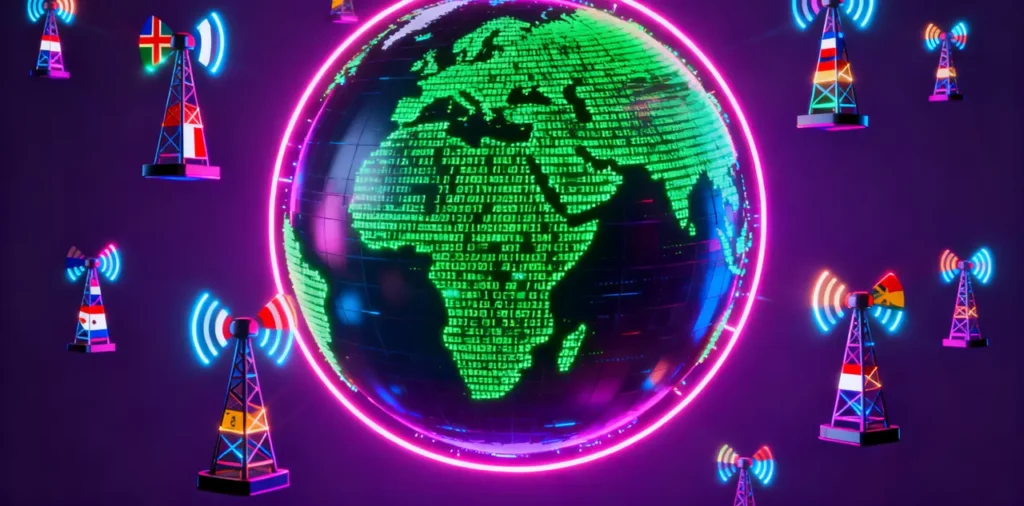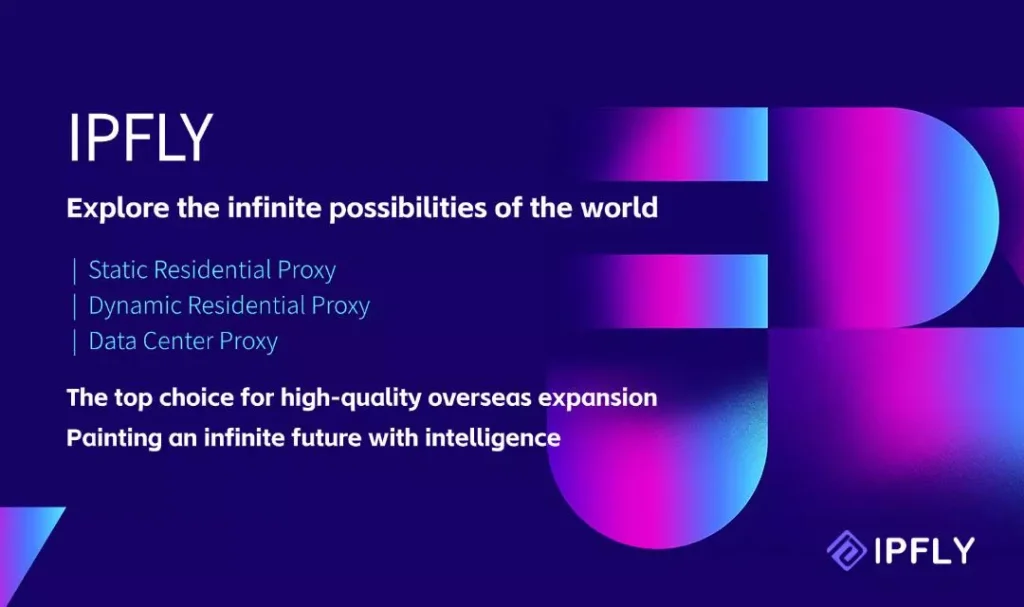
Scroll through social media, browse a website, or sign up for a service—chances are, your digital footprint is being tracked. From ads following you across platforms to websites logging your location and browsing habits, online privacy feels like a thing of the past. But what if you could move through the internet without being recognized, tracked, or blocked? That’s where incognition comes in.
Incognition isn’t about being “invisible”—it’s about controlled anonymity: navigating the web in a way that hides your real identity, location, and device details from prying eyes. Whether you’re a content creator avoiding account bans, a business conducting market research, or just someone who values privacy, incognition is your digital superpower. In this guide, we’ll break down what incognition is, why it matters, how to achieve it, and how a trusted tool like IPFLY elevates your anonymous online experience.
What Exactly Is Online Incognition?
Let’s ditch the jargon—incognition is simply the ability to browse, work, or interact online without revealing your true digital identity. Think of it as wearing a “digital disguise”: instead of using your real IP address (which acts like your online home address), you use a stand-in that hides where you’re really connecting from.
But incognition goes beyond just hiding your location. It also involves:
-Preventing websites from tracking your device (e.g., browser fingerprints, device IDs).
-Avoiding being flagged as a “bot” or suspicious user.
-Keeping your data encrypted and safe from third-party snooping.
Unlike “private browsing” (which only deletes your local history, not your online footprint), true incognition ensures that websites, search engines, and advertisers can’t link your actions back to you. It’s the difference between closing the curtains in your house vs. moving to a secret location—one hides your activity from people in the room, the other hides you entirely.
Why Incognition Matters: 5 Key Use Cases
You might think incognition is only for “tech-savvy” users, but it’s actually essential for anyone who wants to take control of their digital life. Here are the most common (and valid) reasons to prioritize it:
1.Protect Personal Privacy
Every time you browse without incognition, websites collect data: your location, device type, browsing history, and even keystrokes. This data is often sold to advertisers or used to build detailed profiles of you. Incognition stops this by masking your identity, so you can browse without feeling like you’re being watched.
2.Avoid Account Bans & Restrictions
Content creators, social media managers, and e-commerce sellers often face account bans if they log in from multiple locations or use “suspicious” IPs. Incognition lets you use clean, trusted IPs that mimic real users, preventing platforms from flagging your accounts as fraudulent.
3.Access Geo-Restricted Content
Streaming services, news sites, and even social media platforms often limit content based on location. Incognition lets you “switch” your digital location to any country, unlocking region-exclusive content, games, or services.
4.Conduct Safe Market Research
Businesses need to gather data from competitors, track global trends, or test ad campaigns—without being detected. Incognition lets you crawl websites, monitor prices, or analyze market data without getting blocked or having your results skewed by personalization.
5.Shield Against Cyber Threats
Public Wi-Fi, shared networks, or unsecure websites put your data at risk of hacking or interception. Incognition adds a layer of encryption and anonymity, keeping your passwords, financial info, and personal data safe from cybercriminals.
How to Achieve True Online Incognition (4 Core Tools)
Incognition isn’t a single tool—it’s a combination of practices and tools that work together to hide your identity. Here are the most effective ways to master it:
1.Proxies: The Foundation of Incognition
Proxies are the backbone of online incognition. They act as a middleman between your device and the internet, routing your connection through a remote server with a different IP address. This hides your real location and makes your traffic appear to come from a legitimate user.
Not all proxies are equal for incognition:
-Residential proxies: Use real IP addresses from ISPs (internet service providers), making them indistinguishable from regular users. They’re the gold standard for incognition, as websites rarely flag them as suspicious.
-Dynamic proxies: Rotate IP addresses with every request, ensuring you never use the same “disguise” twice—critical for avoiding detection during repeated actions (like crawling or account management).
-Data center proxies: Faster and more affordable, ideal for high-speed tasks (like streaming) where absolute stealth isn’t the top priority.
2.Privacy-Focused Browsers
Browsers like Tor, Brave, or DuckDuckGo Privacy Browser block trackers, disable browser fingerprinting, and encrypt your traffic—enhancing your incognition efforts. Pair them with a proxy for maximum anonymity.
3.Encryption Tools
VPNs (Virtual Private Networks) encrypt your entire internet connection, while tools like HTTPS Everywhere ensure you’re always using secure connections. Encryption prevents third parties from intercepting your data, even if your proxy is compromised.
4.Anti-Fingerprinting Software
Websites use “browser fingerprinting” (collecting data like your screen resolution, browser version, and plugins) to identify you—even with a proxy. Tools like Privacy Badger or Canvas Blocker disrupt this by masking or randomizing your device details.
IPFLY: Elevating Incognition with Reliable Proxy Power
For incognition to work, your proxy needs to be undetectable, stable, and versatile—and IPFLY delivers on all fronts. Designed for controlled anonymity, IPFLY’s proxies are a perfect fit for anyone looking to master online incognition.
Here’s how IPFLY supports incognition:
-Real, Human-Like IPs: IPFLY’s residential proxies are sourced from real end-user devices in 190+ countries. These IPs mimic genuine users, so websites never flag you as a bot—critical for seamless incognition.
-Dynamic IP Rotation: Their dynamic residential proxies switch IP addresses with every request (or on a schedule), ensuring you never leave a consistent digital trail. This is game-changing for tasks like social media management, web crawling, or ad verification, where repeated use of the same IP leads to bans.
-99.9% Uptime & Stability: Incognition fails if your proxy disconnects mid-task. IPFLY’s fully self-built servers and multi-layered filtering ensure reliable connections, so you stay anonymous without interruptions.
-Global Coverage: With over 90 million IPs across 190+ countries, IPFLY lets you “disguise” yourself anywhere in the world. Whether you need a US IP for streaming, a European IP for market research, or an Asian IP for social media, you can switch locations in seconds.
-Full Protocol Support: IPFLY works with HTTP/HTTPS/SOCKS5—compatible with all privacy browsers, encryption tools, and incognition workflows. No messy setup or tool conflicts—just plug-and-play anonymity.
For example, a content creator using IPFLY’s dynamic residential proxies can manage multiple social media accounts without being flagged, while a business can crawl competitor websites for data without getting blocked. IPFLY turns incognition from a “nice-to-have” into a reliable, actionable tool.
New to cross-border proxies, don’t know how to set up, fear mistakes, or choose types? Newbie guides are here! Head to IPFLY.net for “newbie-friendly proxy plans” (with setup tutorials), then join the IPFLY Telegram newbie group—get “step-by-step proxy setup from scratch” and “real-time FAQ answers”. Learn from veterans, newbies can master cross-border proxies easily!

Common Myths About Incognition (Busted!)
Incognition is often misunderstood—let’s set the record straight on 3 big myths:
1.“Incognition Is Illegal”
False. Incognition is legal for protecting privacy, accessing geo-restricted content (that you’re entitled to), or conducting legitimate business research. It only becomes illegal if you use it to commit fraud, hack, or violate website terms of service (e.g., scraping copyrighted data).
2.“Free Proxies Offer Real Incognition”
Free proxies are overcrowded, slow, and often shared among thousands of users. They’re more likely to be blacklisted by websites, and many sell your data to third parties—defeating the purpose of incognition. Invest in a premium service like IPFLY for true anonymity.
3.“Incognition Makes You Completely Invisible”
No tool can make you 100% invisible online—but incognition lets you control what information you share. It’s about reducing your digital footprint to a level where websites, trackers, and advertisers can’t identify or target you.
Ethical Incognition: Use It Responsibly
With great incognition power comes great responsibility. Here are 3 rules to follow:
-Respect Website Rules: Don’t use incognition to bypass anti-scraping policies, cheat on platforms, or access illegal content.
-Protect Others’ Privacy: Don’t use incognition to harass, stalk, or exploit others online.
-Stay Compliant: Follow data privacy laws (like GDPR or CCPA) when collecting or using data while anonymous.
Wrapping Up: Incognition Is for Everyone
In a world where digital privacy is increasingly rare, incognition is your right—and your defense. It’s not about hiding something; it’s about taking control of your online identity, protecting your data, and accessing the internet on your terms.
The key to successful incognition is choosing reliable tools. IPFLY’s proxies provide the undetectability, stability, and global reach you need to stay anonymous without sacrificing performance. Whether you’re a casual user wanting to browse privately or a professional needing to scale anonymous tasks, IPFLY makes incognition simple and effective.
Ready to stop being tracked, blocked, or targeted? Incognition is your first step—and with the right tools, it’s easier than you think.


